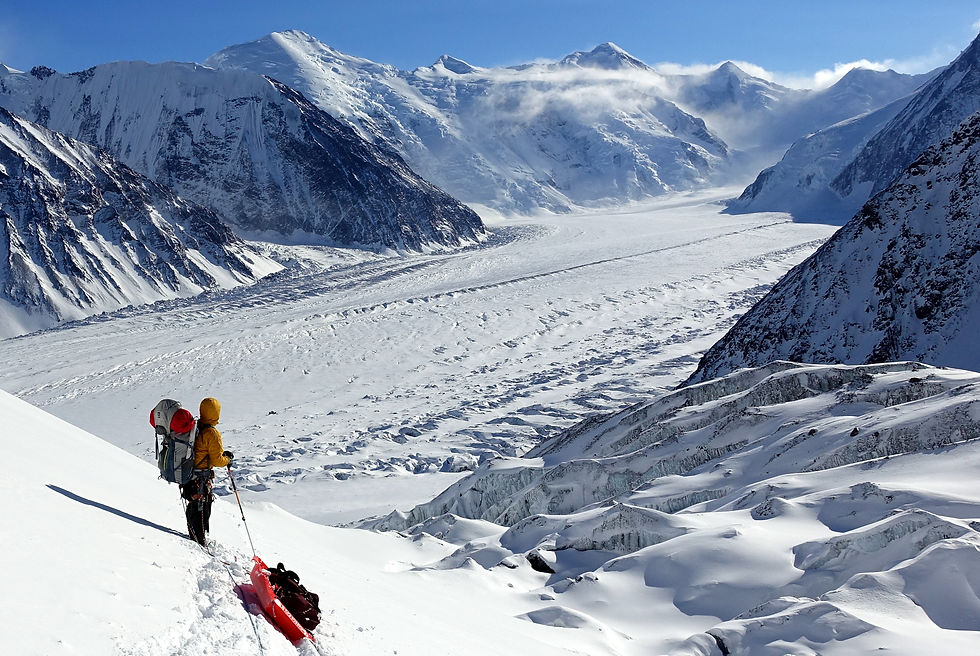Mt. Hunter's South Summit | Alaska
- Pascale Marceau
- Oct 12, 2020
- 2 min read
Updated: Oct 12, 2021
Attempt at Winter First Ascent
The Alaska Range is famous for its harsh winters. Mt Hunter, is deemed one of the most technical 14,000ft mountains in the world. Its south summit, also referred to as Mt. Stevens (4,257m) is seldom visited and has never been climbed in the winter. Our two person team, Marceau and Dupre, will attempt to be the first to do so.

We aim to experience this area at a time of year when no one else has. We can expect minus 50 degree temperatures, gale force winds and multi-day storms. This will be one of the most technical climbs we have ever attempted mainly due to the additional component of having to pitch out some long segments in the grueling cold. Winter, especially in the Alaska Range adds a mental and physical difficulty that few understand.
The first winter ascent of Mt. Hunter’s south summit will be a test of human will, mountaineering skills and years of polar expedition experience. It will also be of great significance for me as I would become the first women to summit one of the taller great Alaska peaks in the winter.

The climb will be attempted via the southwest ridge. Although this route has been done a handful of times, not in recent history and never in the winter. With a warming planet, snow and ice have dwindled from this route, which has greatly increased its technicality.
There are three technical cruxes to the route:
Navigating the crevassed Kahiltna glacier as a rope team of only two
800m avalanche prone couloir – careful timing required
Summit day has a 600m mixed rock and ice section that will require upwards of 12 pitches made extremely challenging in the intense cold.

This will be our second attempt at this route, giving us valuable insight to this year’s attempt. Last year, we turned around at the final crux due to frostbite issues with our teammate. We have attempted other routes on this mountain as a team and solo over the years.
DATES
February 27th – March 21st, 2021 (23 days) Target is to complete the climb before March 21st, the end of winter.
Comments